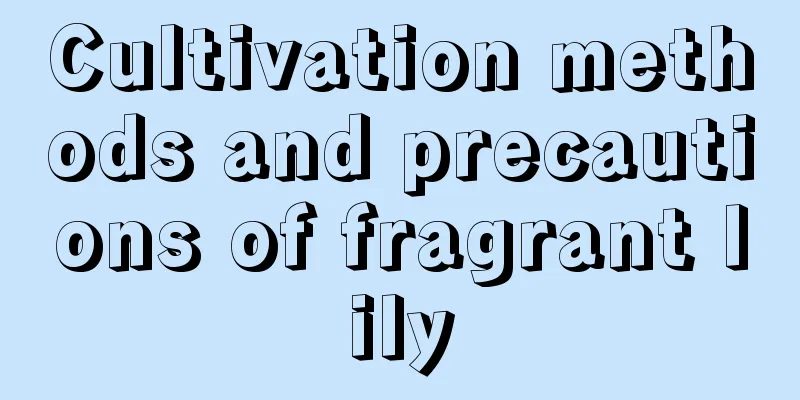How to grow Lychnos

1. Maintenance methods1. Temperature: Lycoris radiata prefers a warm growing environment and can grow normally between 15 and 35 degrees. At the same time, it needs to be kept warm in winter and not too cold to prevent frostbite. If the temperature exceeds 35 degrees, growth may slow down. 2. Watering: Lycoris has a high demand for water, and the soil must be kept moist so that it can branch normally. The number of flower buds will also increase as a result. During the growth period, it is necessary to ensure that it is watered three to six times a month. You can reduce the frequency in winter, but make sure to get enough water in summer. At the same time, the moisture in the air must meet the standards, and water mist can be sprayed. 3. Light: Sufficient and warm sunlight will make the flowers more vivid and redder. If there is not enough light, not only will the flower color not be as beautiful as expected, but the size of the flower will also change. The strong light in summer can be reduced appropriately and the plants can be moved indoors for cultivation. They must receive full sunlight in other seasons. 4. Fertilization: There is no requirement for fertilizer. It can grow normally without fertilization. If there are conditions to fertilize, do not apply too much fertilizer, otherwise it will grow too tall or grow poorly. At the same time, reduce the application of nitrogen fertilizer during the flowering period. If too much nitrogen fertilizer is consumed, flowers will fall off. 2. Breeding techniques1. Reproduction: Sowing and division are the main methods. Sowing can be done in spring and autumn. It will germinate in about ten days. It can be transplanted when it grows five leaves. If you want to divide the plant, you need to choose two-year-old or three-year-old plants. After division, keep the environment cool, so that the survival rate will be higher. Also, be careful not to break the young branches during the division process. 2. Pruning: In order to extend the flowering period, some withered flowers need to be pruned. At the same time, pinching is also necessary. When it grows to about 20 centimeters, it needs to be pinched to control the height well to prevent it from falling over later. 3. Problem diagnosis and treatment1. Disease: Leaf spot disease will affect the ornamental value. Once discovered, it must be controlled in time. 2. Pests: Aphids will occur, and you can spray DDT solution to prevent them. IV. Other issues1. Toxicity: It is non-toxic and can absorb harmful gases in the air. 2. Can it be kept at home: Yes, it can be used to decorate the home. Cultivate sentiment and increase vitality. |
<<: How to grow Martian flowers
Recommend
What fertilizers to use for grape fertilization in spring (how to properly fertilize grape vines in spring)
1. Pay attention to the garden conditions and tre...
When should we apply fruit-enlarging fertilizer to water chestnuts? What fertilizer is good for water chestnuts during their enlargement period?
Water chestnut is a household-known plant. It can...
Can beer be used to water camellia?
1. Is it suitable? The answer is yes. Moreover, a...
When does snapdragon bloom?
Flowering period of snapdragon The flowering peri...
Diseases and their control of roses
Black spot of rose Symptoms Initially, small purp...
Where is the best place to grow wasabi?
Introduction to Wasabi Wasabi is mainly distribut...
How to prune cherry trees? Pruning time and technique diagram
Cherry tree pruning time Cherry trees can be prun...
How to repot lotus
Repotting method Most families grow water lilies ...
How many kilograms can one mu of wild rice produce?
Yield per mu of wild rice stem Water bamboo is a ...
Flowers also need a "bath". Wipe them every time and the leaves will become shiny and reflective!
In fact, flower plants, like humans, also need a ...
Causes and treatments for yellow leaves of Lilium lily
1. The temperature is too low 1. Reason: Tiger Li...
What to do if Christmas cactus doesn't grow
one. Control the growth temperature of Christmas ...
How and when to plant basil
Planting time and month of Perilla Perilla can be...
Can a hawthorn tree be planted outside your home?
Can a hawthorn tree be planted outside your home?...
What to do if the leaf umbrella drops leaves
Reasons for leaf drop 1. Pests and diseases The h...









